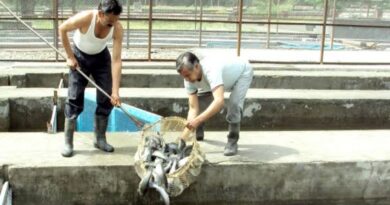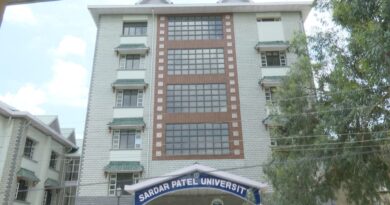Himachal’s horticulture reaches new heights with Innovation, achieves Rs. 5000 Cr revenue
The Himachal Pradesh government is revolutionizing its horticulture sector with a range of farmer-centric initiatives. From distributing six lakh premium saplings to establishing the world’s first geothermal storage facility, the state is setting new standards for sustainable growth. These efforts are not only improving livelihoods but also positioning Himachal as a leader in horticultural development nationwide.
Horticulture is the backbone of Himachal’s agricultural economy, with 234 lakh hectares dedicated to fruit cultivation. The sector generates an annual income of Rs. 5,000 crore and provides direct and indirect employment to nine lakh people, making it a vital source of livelihood. Recognizing its significance, the state government consistently rolls out advanced programs to support gardeners and boost economic growth.
A key achievement this year is the production of six lakh A-grade apple saplings across 93 nurseries, marking the first time that such high-quality saplings of 32 varieties are being made available to gardeners. This ensures access to top-tier plants, setting a higher benchmark for yield and quality. Additionally, eight new apple varieties have been developed, which will be offered at affordable prices to small and marginal farmers.
In a groundbreaking collaboration with Iceland, the state is introducing the world’s first controlled-environment storage facility using geothermal technology in Tapri, Kinnaur. This facility will extend the shelf life of fruits by maintaining optimal storage conditions, helping farmers maximize their profits. Experts from Iceland will also provide training to local horticulturists, empowering them with cutting-edge technology to enhance productivity.
The reduction of GST on apple cartons from 18% to 12% is another significant win for the state’s horticulturists, reducing packaging costs and increasing profitability. The government has also restored subsidies on pesticides and allocated Rs. 531 crore for irrigation and high-density fruit plantation this year, ensuring comprehensive support for both small and large-scale farmers.
The state has further strengthened farmers’ financial security by increasing the support price for fruits such as apples and mangoes by Rs. 1.50 per kilogram. Citrus fruits, like kinnows and oranges, have also seen a historic price increase of Rs. 2.50 per kilogram, ensuring fair compensation for farmers. Additionally, machinery subsidies are being introduced to make modern equipment more accessible to farmers.
The ambitious HP Shiva Project is another landmark initiative, with a budget of Rs. 1,292 crore aimed at covering 6,000 hectares across seven districts by 2028. This project will introduce scientific cultivation techniques and plant 60 lakh fruit saplings, promoting high-income crops like dragon fruit, avocado, and macadamia nuts. Collaboration with Yashwant Singh Parmar Horticulture and Forestry University Nauni is laying the groundwork for sustainable practices and higher incomes for farmers.
Horticulture tourism is also gaining momentum, as the state identifies cluster sites to promote agro-tourism. This will provide farmers with additional revenue streams, further boosting their economic stability.
Committed to making Himachal self-reliant by 2027 and one of the wealthiest states by 2032, the government is focused on global competitiveness and innovation. By adopting advanced technologies, increasing support prices, and providing top-quality saplings, the state is ensuring that horticulture remains a key pillar of its economy for years to come.



